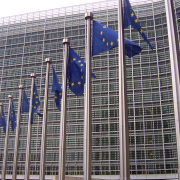EFSA will evaluate emergency authorisations granted by Member States for the use of neonicotinoids in sugar beet cultivation in 2020.
The European Commission’s application covers about 21 emergency authorisations for thiacloprid, clothianidin, thiamethoxam and thiacloprid granted by the following countries: Austria, Belgium, Croatia, Denmark, Finland, Lithuania, Poland, Romania, Slovakia and Spain.
The outdoor use of the active substances imidacloprid, thiamethoxam and clothianidin was banned in May 2018 and the European Commission rejected an application to renew the approval of thiacloprid in January 2020. The decisions were taken after the EFSA scientific assessments were conducted.
The European Food Safety Authority will examine the justification for the authorisations given the specific situation of each Member State and the availability of alternative means to protect sugar beet crops. The assessments will have to be completed in the second half of 2021.
In addition, EFSA will take the opportunity to review the methodology used for the assessments in light of the European Commission’s farm-to-table and biodiversity strategies, in particular the objectives for reducing pesticide use and promoting alternatives to pesticides.
The new methodology, which will support the harmonization of pesticide use in the EU Member States, should be available by the end of 2022.

